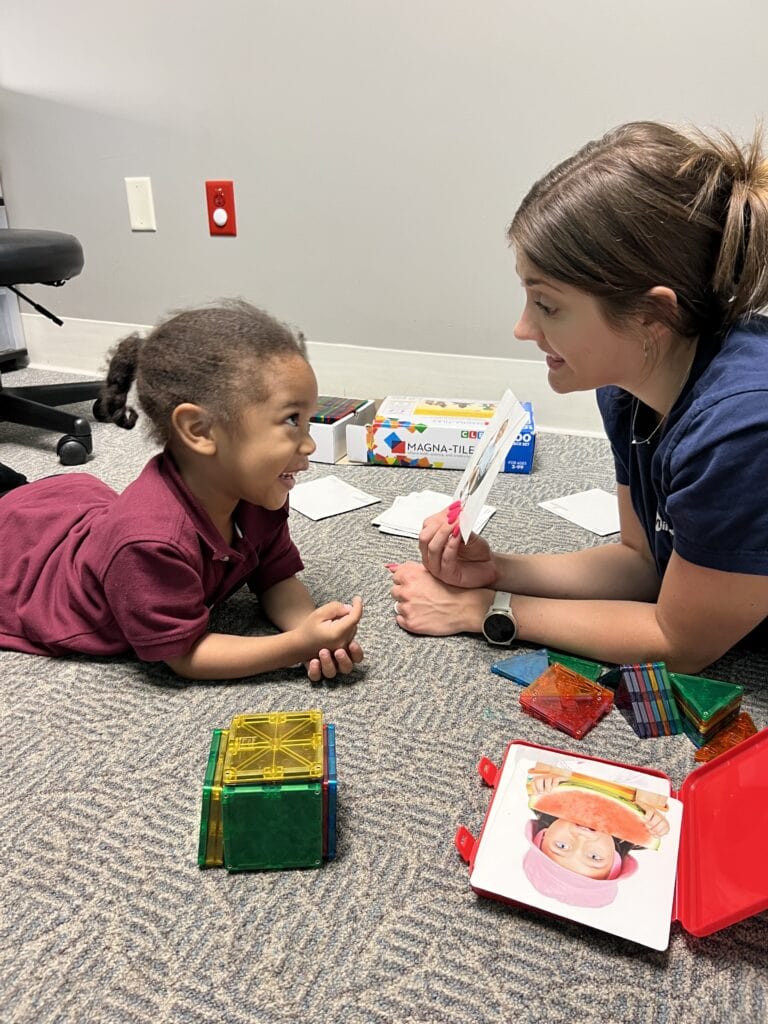I spy… fun and easy pediatric speech therapy activities
When it comes to pediatric speech therapy activities to target speech and language skill development at home, it may be difficult to develop tangible activities. Occupational therapy and physical therapy can both have more concrete practice activities that are measured in a given amount of time and trials to target various gross motor, fine motor, or sensory processing skills.
And while language may be more difficult to track, it is ALWAYS occurring and there are many areas that can be targeted (increasing phrase length, speech sound production, fluent speech, and so on).

“I Spy” fun speech therapy activity for kids
A fun and easy way to practice is the classic game of “I spy”. It is great for many reasons: you use the environment around you, encourage family participation, and can be done anywhere, anytime. Tip: books are great to use for “I spy.” Bonuses to playing this game are that it targets multiple areas of speech and language, and it can be great for both young and old children. The targeted areas of speech and language include articulation, expanding utterance length, using adjectives, answering, and asking questions, understanding categories and other attributes… the list is almost endless!
Let’s say that your child is in early intervention (birth to three services). The purpose of “I spy” at this level is naming what you see to give exposure to a vast vocabulary. It will also encourage children to name what they see. As they begin to use more words, you can target “see _” to increase phrase length, working up to “I see/spy __”.
This game can also be targeted receptively with having children find the named items, both in the present environment or on the page of a book. Young children’s early vocabulary consists of mostly nouns, “I spy” can target placing those identified nouns into short sentences.
For preschool age and up, this game can also be used to target speech sounds. For example, change it to “I find__” to target that /f/ or see if your child can find items based on their target sounds. Or stick with “spy” in order to target the /sp/ blend. Any sentence practice that has your child naming items will also work on their speech fluency and promoting slow, easy speech! The classic game of taking turns (another important skill) to have others guess what you are “spying” is great language practice both expressively (having to describe it by its color or other attributes) and receptively (identifying items by attributes as well). No books and nothing fun going around you?
Try a different version of this game called “I’m thinking of a (category item)”. This helps with inferencing skills that are important for understanding more complex language skills. You can also have your child practice asking yes/no questions to deduce what the item is. When it comes to expressive skills: sentence length, speech fluency, and question answering are all targeted.
I spy… with my little eye… some great speech-language practice that will be had by all those who read this. We also have tons of awesome information on our resources page, including toys and activities to help your child learn and grow.
Follow us on Facebook to stay up-to-date on blog posts like this and more! And as always, if you believe your child would benefit from therapy services, contact us to schedule an appointment today.
